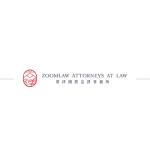SECTION 1: General outlook
1.1 Please summarise the broad trends and patterns in Chinese investment into your jurisdiction, citing any recent specific examples.
Over the past 15 years, Taiwan's economy has become deeply linked with that of its neighbour. China is Taiwan's largest trade partner, absorbing nearly 30% of Taiwan's exports by value. In 2015, exports accounted for 53% of Taiwan's GDP, and China is by far its leading market. The Economic Co-operation Framework Agreement was signed in 2010 and removed tariffs on 539 goods going from Taiwan to China and 267 goods going from China to Taiwan.
1.2 How would you summarise your jurisdiction's attitude towards PRC investment?
Taiwan is a preferred destination for foreign direct investment (FDI) as its economy benefits from regional economic dynamism, a population with high purchasing power and the prominence of advanced technology. However, the global economy has negatively impacted FDI flows. Speculative activities, rising house prices, excessive bureaucracy and the rigidity of the legislative framework are all obstacles to investment. Nonetheless, Taiwan's business environment remains very attractive and the World Bank ranks its economy 15th out of 190 in its Doing Business 2018 ranking. According to the Investment Commission of Taiwan, the country has benefited from a 130% increase in FDI flows in 2016, reaching $11 billion. Investment from China increased slightly.
Taiwan and China have been continuously breaking the existing barrier and actively improving economic and trade exchanges. Taiwan first opened up to Chinese investment in 2009 and its position has been to open up step-by-step. In terms of the economy, Chinese investments are beneficial to the abundance of funds in Taiwanese industries, the revitalisation of the financial market and the expansion of industrial cooperation between Taiwan and China. Through bilateral investments, Taiwan and China could combine their own advantages to jointly develop Chinese and foreign markets. Furthermore, it gives more faith to foreign investors and increases the likelihood for Taiwan to be the operational center of the world.
From June 2009, when Taiwan started to open up to the Chinese investors, until January 2018, the Taiwanese government has permitted 1,106 Chinese investment projects in total, and the gross value of permitted Chinese investments has reached $2.04 billion. This shows the attentive attitude of the Taiwanese government towards the Chinese investments.
1.3 What is your outlook for Chinese investment into your jurisdiction over the next 12 months?
Taiwan remains one of the most attractive investment destinations globally, including for investment from China. The common culture and language have provided links for connection between Taiwan and China. Taiwan is a considerable industrial and logistical fabric with an abundance of a skilled labour force and strong research and development capabilities. Most importantly, it has a strategic geographical location as an entryway to China and the Asean markets.
SECTION 2: Investment approval
2.1 Explain the process and timings for foreign investment approval.
To ensure monitoring of PRC-sourced investment in line with Taiwanese law and public sentiment, Taiwan's National Security Bureau has participated in every investment review meeting since April 2014, regardless of the size of the investment.
Foreign investors must submit an application form containing the funding plan, business operation plan, entity registration, and documents certifying the inward remittance of investment funds. Applicants and their agents must provide a signed declaration certifying that any PRC investors in a proposed transaction do not hold more than a 30% ownership stake and do not retain managerial control of the company. When an investment fails review, an investor may re-apply when the reason for the denial no longer exists. Foreign investors may also petition the regulatory agency that denied approval, or may appeal to the Administrative Court.
2.2 Briefly explain the investment restrictions for any specially regulated/restricted sectors, including whether the government is entitled to any special rights in those sectors.
Taiwan has opened more than two-thirds of its aggregate industrial categories to Chinese investors, including 97% of its manufacturing sub-sectors and 51% of its construction and services sub-sectors. Chinese nationals are prohibited from serving as chief executive officers in a Taiwanese company, although a Chinese board member may retain management control rights.
2.3 Which authority oversees competition clearance?
The Fair Trade Commission of the Republic of China is an independent government agency subordinate to the Executive Yuan, which is responsible for competition policy, trade practices, formulating fair trade policy, laws, regulations, unfair competitions and so forth on the part of enterprises in the Taiwan.
2.4 Briefly explain the merger clearance process.
According to Article 11 of the Fair Trade Act, any merger that falls within any of the following circumstances shall be filed with the competent authority in advance:
as a result of the merger the enterprise(s) will have one third of the market share;
one of the enterprises in the merger has one fourth of the market share;
or sales for the preceding fiscal year of one of the enterprises in the merger exceeds the threshold amount publicly announced by the competent authority. The threshold amount of the sales shall include the sales amount of an enterprise that is controlled by, controlling, or affiliated with the enterprise in the merger, and of an enterprise where both it and the enterprise in the merger are controlled by the same enterprise or enterprises. The calculation method shall be publicly announced by the competent authority.
2.5 Are there approval requirements when a foreign investor increases or exits its investments?
Approval is needed when the foreign investment plan in Taiwan has changed. According to Article 8 of Statute For Investment by Foreign Nationals, any investor who makes an investment in accordance with this Statute is required to submit an investment application, together with his/her investment plans and relevant documents, to the Competent Authority for approval. The same shall apply if and when his/her investment plan changes. In addition, paragraph 1 Article 9 of China's Permit for Investment in Taiwan, it is stated that the investors should fill in an application for investment, attaching the investment plan, proof of identity, power of attorney and other relevant documents. If there are any changes to the investment plan, the same rule shall apply.
SECTION 3: Investment techniques
3.1 What are the most common legal entities and vehicles used for Chinese outbound investment in your jurisdiction?
The most common legal entity or vehicle used for Chinese outbound investment in Taiwan is registering a local limited liability company.
3.2 What are the key requirements for the establishment and operation of these vehicles that are relevant to Chinese investors?
A Taiwan limited liability company can be registered with only one shareholder and one director, who can both be non-resident foreigners. There is no minimum paid-up capital requirement; however, an allocation of $3,300 is recommended to optimise the probability of timely company registration approval by the Ministry of Economic Affairs.
SECTION 4: Dispute resolution
4.1 Does your jurisdiction have a bilateral investment protection treaty with China or other jurisdictions commonly used for investing into the country?
To date, Taiwan has signed the bilateral investment protection treaties with 32 other investors, including the Cross-Strait Service Trade Agreement signed during 2012.
4.2 How efficient are local courts' enforcement and dispute resolution proceedings, and are there any procedural idiosyncrasies foreign investors must be aware of?
Arbitration and mediation are commonly used in Taiwan due to the lengthiness of the courts' proceedings. Many parties agreed to involve in dispute resolution proceedings to avoid the time consuming process through the local courts.
4.3 Do local courts respect foreign judgments and are international arbitration awards enforceable?
The recognition of foreign judgments is governed under Article 402 of the Taiwan Code of Civil Procedure. A foreign judgment of a foreign court shall be recognised by the Taiwan court first, as long as it does not fall into the exceptions under Article 402. After the recognition it shall be enforceable.
4.4 Are local judgments and arbitration awards from your jurisdiction generally enforceable in other jurisdictions?
The local judgments from Taiwan are subject to interpretations by the Supreme People's Court (China). For example, Supreme People's Court Directives in respect of the Acknowledgment and Enforcement of the Civil Judgments Rendered by Courts in Taiwan Region effective on July 1 2015.
SECTION 5: Forex controls and local operations
5.1 What foreign currency or exchange restrictions should foreign investors be aware of?
There are no foreign exchange limitations on trade, insurance and authorised investment transactions. Similarly, there are no foreign exchange limitations on repatriating capital and profits related to direct and portfolio investment, provided that such investment has been permitted or approved by Taiwan authorities. There are no limitations on inward and outward remittances not involving any exchange between the NT$ and the foreign currency.
SECTION 6: Tax
6.1 Are there tax structures and/or favourable intermediary tax jurisdictions that are particularly useful for foreign direct investment (FDI) into the country?
Generally, investors should take advantage of the tax inventives available for them such as tax exemption, tax credit, tax deferral, low interest loans, land lease incentives and so forth.
6.2 What are the applicable rates of corporate tax and withholdings tax on dividends?
The corporate income tax rate is 20% and dividends paid to non-residents are subject to withholding tax of 21%.
6.3 Does the government have any FDI tax incentive schemes in place?
Taiwan has now signed the income tax agreements with 32 investors and international transportation income tax agreements with 13 investors. These agreements have granted dividends, royalties, tax-rate discount and so forth to the foreign investors.
6.4 Are there any reciprocal tax arrangements between your jurisdiction and China? If so, how can they aid investors?
See Section 6.3
About the author |
||

|
|
Kuohua Fan Managing partner, Zoomlaw Attorneys-at-law Taipei, Taiwan, ROC T: +886 2 2759 5585 F: +886 2 2759 5586 Wechat ID: kuohuafan Dr Kuohua Fan is the founder and managing partner of Zoomlaw Attorneys-at-law. He was the chief legal officer of a prominent Taiwanese information technology public company for more than a decade. Fan specialises in a broad range of global corporate legal affairs, as well as risk management in relation to IP affairs, international trading, investment, business strategy planning, operations and implementation. He has successfully dealt with numerous international M&A transactions in Germany, the US, India, Brazil, Singapore and China. Led by Fan, Zoomlaw had established cooperation with over 200 law firms around the world, by which Zoomlaw can efficiently assist our clients manage international business risks and safeguard its legal rights. Fan is experienced in negotiation and resolving disputes without litigation to protect the client's interests in a timely and efficient manner. Fan is an officially appointed legal and business consultant for Taiwan-China cross-strait commerce, and is also a listed arbitrator of the Chinese Arbitration Association. He obtained an LLM degree from UC Berkeley and a PhD from the China University of Political Science and Law. Fan also is an adjunct assistant law school professor at Taiwan Shih Hsin University and Tatung University. |
About the author |
||

|
|
Pochun Lin Lawyer, Zoomlaw Attorneys-at-law Taipei, Taiwan, ROC T: +886 2 2759 5585 F: +886 2 2759 5586 Pochun Lin obtained his LLM from the Emory University and MBA from the University of La Verne. He is a member of the New York State Bar Association, the American Bar Association and the International Bar Association. He is fluent in both English and Japanese. Lin was previously an associate in a New York law firm and he worked for technology companies as a legal specialist after he relocated back to Taiwan. He advised his clients on issues such as civil litigation issues, mergers and acquisitions, antitrust issues, contract reviewing and drafting, non-litigation cases in international affairs and so forth. Lin has participated in commercial lawsuits in US and South Korea, as well as a patent litigation cases in the US Federal Court. |

